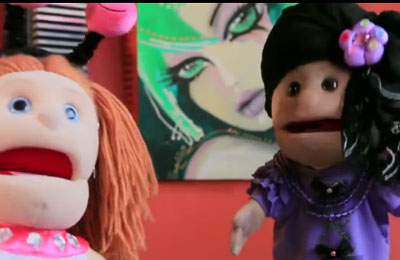
'Bomb code' in ad alleged; Egypt questions Vodafone
Cairo, January 2, 2014
Egyptian state security prosecutors are questioning the makers of a commercial for Vodafone Egypt after a little-known rap singer alleged the ad included coded signals for bomb attacks by the Muslim Brotherhood.
The Egyptian unit of Vodafone, the world's biggest mobile operator by revenue, rejected the suggestions.
In a statement sent to Reuters on Thursday, it said the ad posted on YouTube and social media channels and featuring a well-known puppet character was meant to promote a special offer for customers to re-activate their old SIM cards and had no hidden meaning.
Any other explanations "are pure fiction and personal opinions" for which the company is not responsible, it added, suggesting it might take legal action "against whomever (is) trying to distort the company's reputation".
The preliminary investigation was launched following a complaint by 25 year-old rapper Ahmed Spider, security and judiciary sources said.
Spider told the private Al-Tahrir TV channel in an interview that baubles on a Christmas tree featured in the commercial represented bombs.
He said the tree's branches mimicked the four-finger gesture used to symbolise the raid by security forces on August 14 last year that killed hundreds of supporters of ousted Islamist President Mohamed Mursi who were camped out in Cairo.
Security sources said the singer was known to be an anti-Islamist and a supporter of the army that last July removed elected president Mursi after protests against his rule.
The government has designated Mursi's Muslim Brotherhood a terrorist organisation and accused it of carrying out a suicide bomb attack last week on a police compound in Nile Delta in which 16 people were killed. The Brotherhood, long Egypt's main political opposition force, has denied any links to the attack.
The ad shows Egyptian puppet character Abla Fahita and her daughter Karkoura desperately searching for her deceased father's SIM card.
Speaking on the phone with a friend called "Mama Touta", Fahita says she asked for the sniffer dog of a shopping mall to search for the missing card.
Spider said the mall and the dog were code words for the planned sites of a coming attack.
"Abla Fahita is a comic character, used in this ad as a tool to clarify the offer to viewers/customers, in a comic and sarcastic context," Vodafone said in its statement.
"The ad is only a marketing communication tool. It does not carry any hidden messages or meanings other than what has been mentioned above."
Company spokesman Khaled Hegazy had earlier said that employees from Vodafone Egypt's marketing and legal departments had been asked about who made the commercial.
"We are very sad that there are people who think in this way in Egypt," said Hegazy, voicing concern that a top state prosecutor had taken seriously the suggestion that a phone company's ad was promoting terrorism.
Vodafone Egypt, one of three mobile network operators in the country, is about 55 percent owned by Britain's Vodafone and around 45 percent by state-owned landline monopoly Telecom Egypt .
The case triggered satirical comment on social media.
"Egypt security: If somebody sees or knows where Abla Fahita, the Muslim Brotherhood terrorist puppet, is hiding contact our Muslim Brotherhood hotline," a tweet under the name of Arab Resistance read.
Another tweet by Iyad El-Baghdadi said: "Forget the four-finger sign, Abla Fahita should become the symbol of resistance to Egypt's new regime." - Reuters







